Gabapentin | Uses, Side Effects, & Addiction
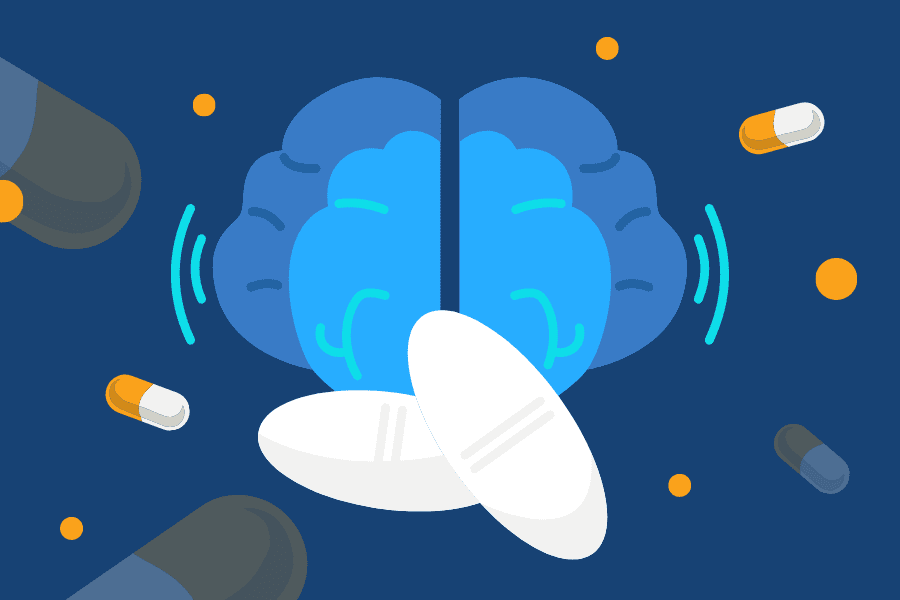

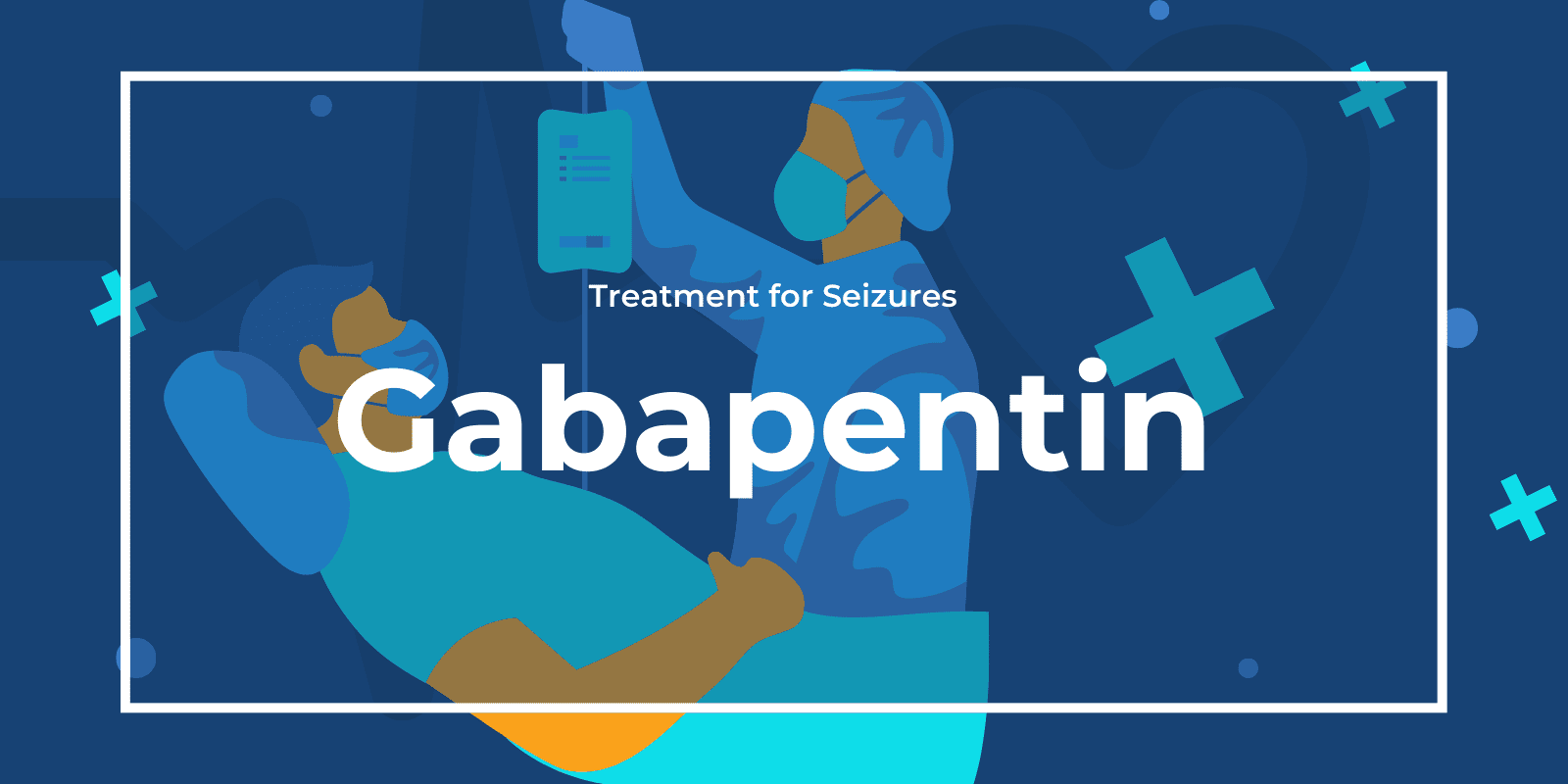
Gabapentin is an anticonvulsant mainly used to help manage seizures for individuals with epilepsy.
It has been FDA-approved to treat neuropathic pain and epileptic disorders. However, in recent years the concern over its potential for misuse and addiction has risen.
Gabapentin commonly goes by the brand name Neurontin or Gralise.
Other names also include FusePaq Fanatrex, Horizant, and Gabarone.
According to the Drug Enforcement Administration and the Controlled Substances Act of 1970, Neurontin, also known as gabapentin, is not named a controlled substance.
Gabapentin may come in the form of a capsule, tablet, or oral solution.
They are commonly white, yellow, or orange.
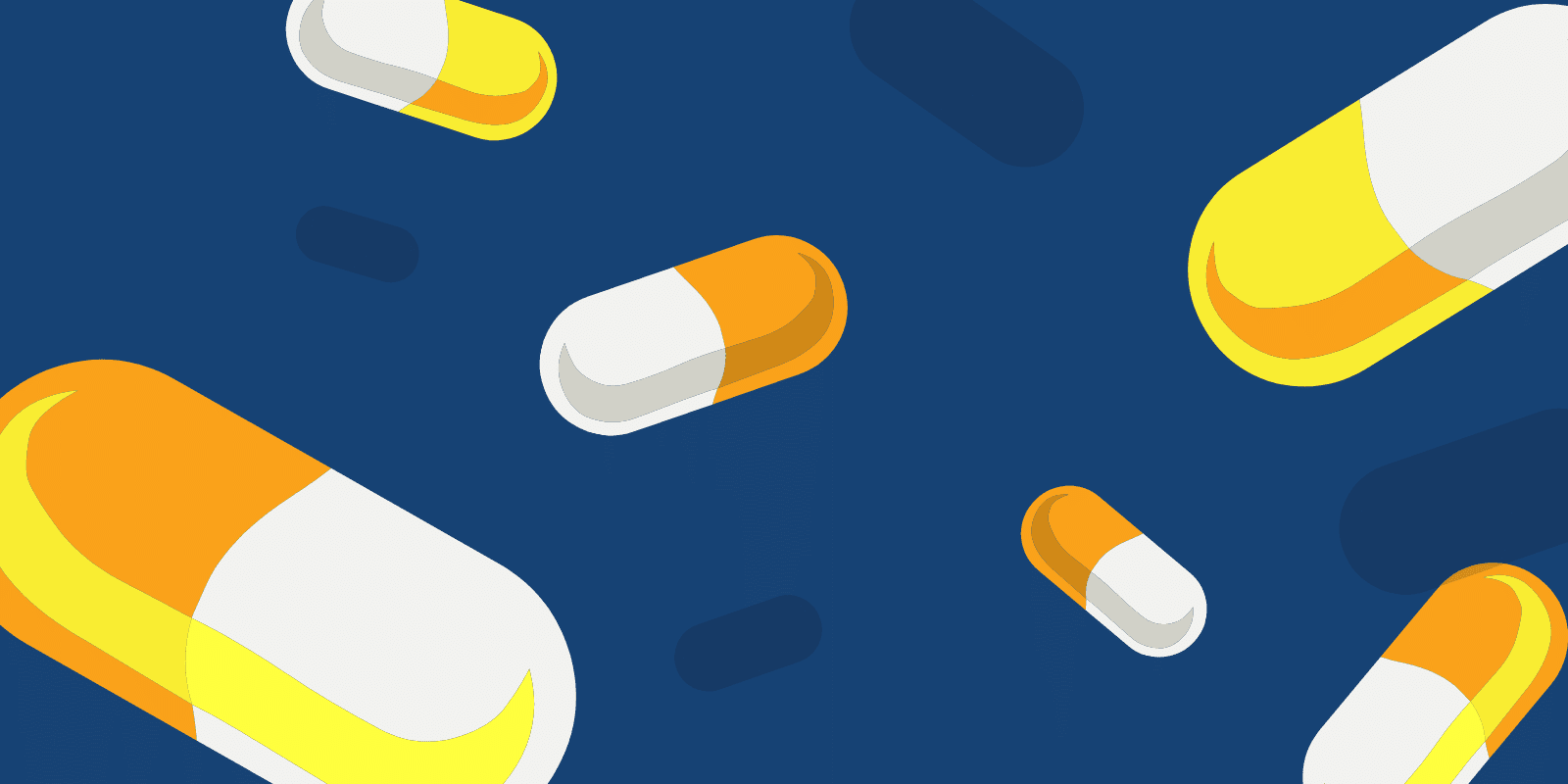
Gabapentin is primarily prescribed for individuals with epilepsy as a way to manage seizures.
However, it may also be prescribed to help relieve pain that comes with postherpetic neuralgia. Postherpetic neuralgia can occur after an attack of shingles that involves burning, stabbing pains, and aches.
Gabapentin Extended-Release tablets are also used in some cases to treat restless leg syndrome (RLS); however, it is unknown how exactly it works in this case.
It may also be used for other reasons, including pain relief for diabetic neuropathy and treatment for hot flashes in patients with breast cancer or who are experiencing menopause.
According to Annals of Pharmacotherapy, there have been numerous documented cases of gabapentin abuse, dependence, and withdrawal.
Gabapentin is not considered to be as addictive as opioids. However, the potential for addiction and misuse is still there.
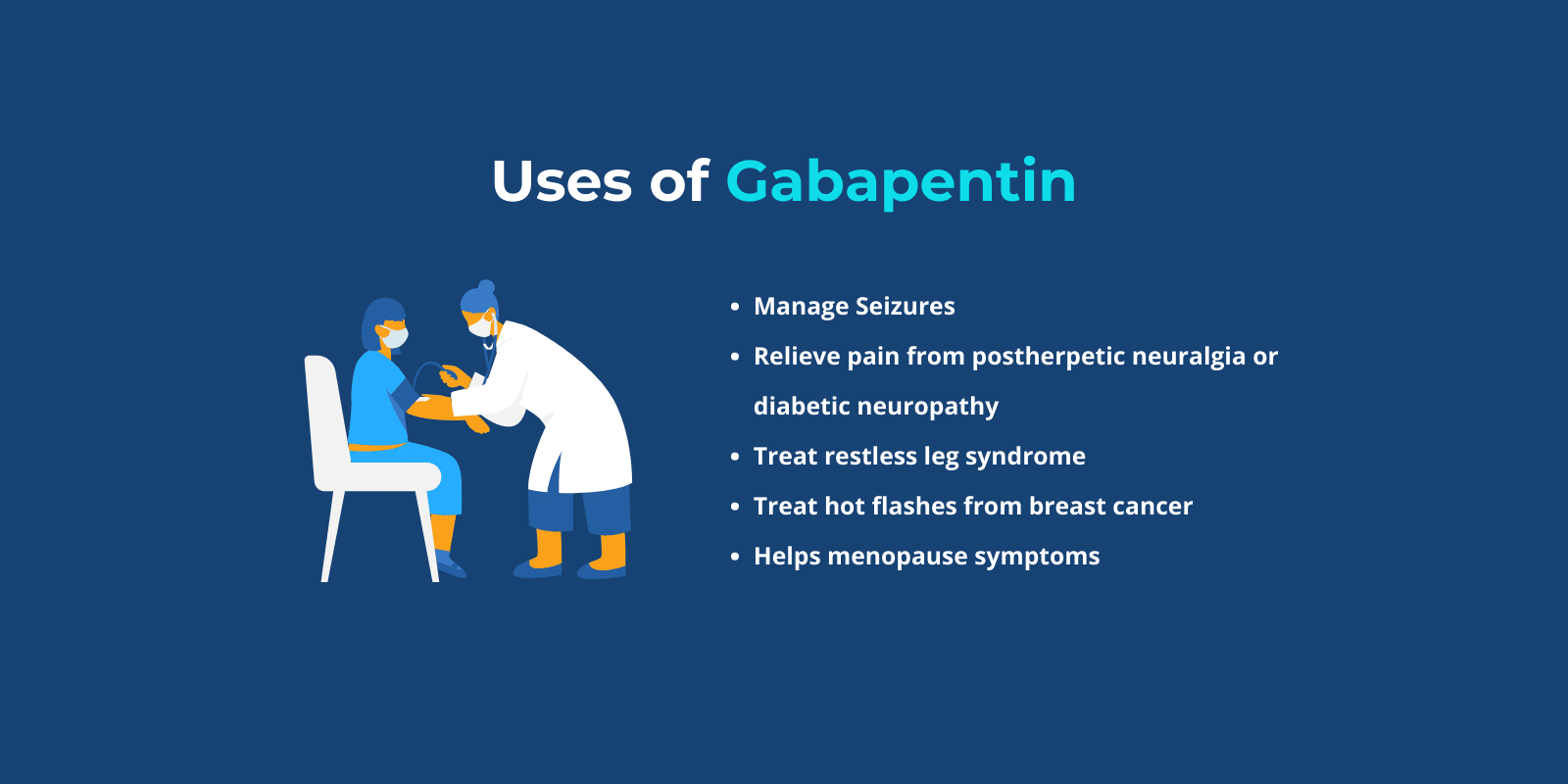
Neurontin usually comes in a tablet or capsule that should be swallowed whole.
Gabapentin may also come in an oral solution as well and should be taken with a glass of water, with or without food.
It should also be taken at evenly timed spaces throughout the day, and no more than 12 hours should pass before the next dose.
The recommended daily dose of gabapentin depends on various factors, including what it is used to treat.
Initial treatment with gabapentin is usually started with 300 mg a day and may increase to up to 4800 mg a day, depending on the individual.
If prescribed gabapentin, it is extremely important to only take the dosage prescribed by your healthcare provider. In the case that you plan on making changes to your medication routine, it is essential to consult your doctor to discuss its safety.
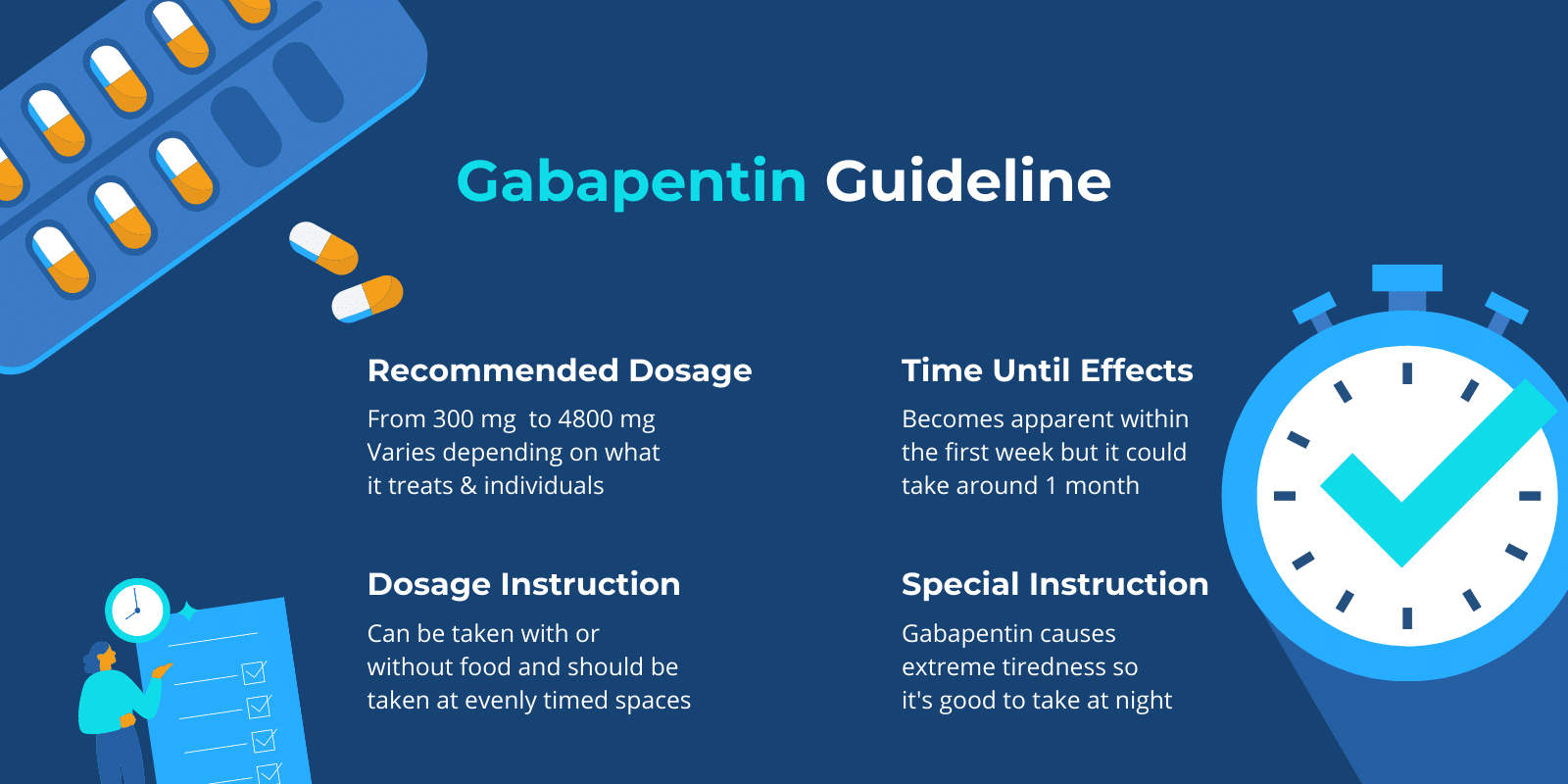
Typically, the effects of gabapentin become apparent within the first week of treatment. However, it can also take around a month to see improvements.
According to the Journal of Experimental Pharmacology, some of the main substances that interact with gabapentin can include:
Taking gabapentin can make a person drowsy and dizzy. You should not drive a car or operate machinery until you know how gabapentin affects you and after consulting with your doctor.
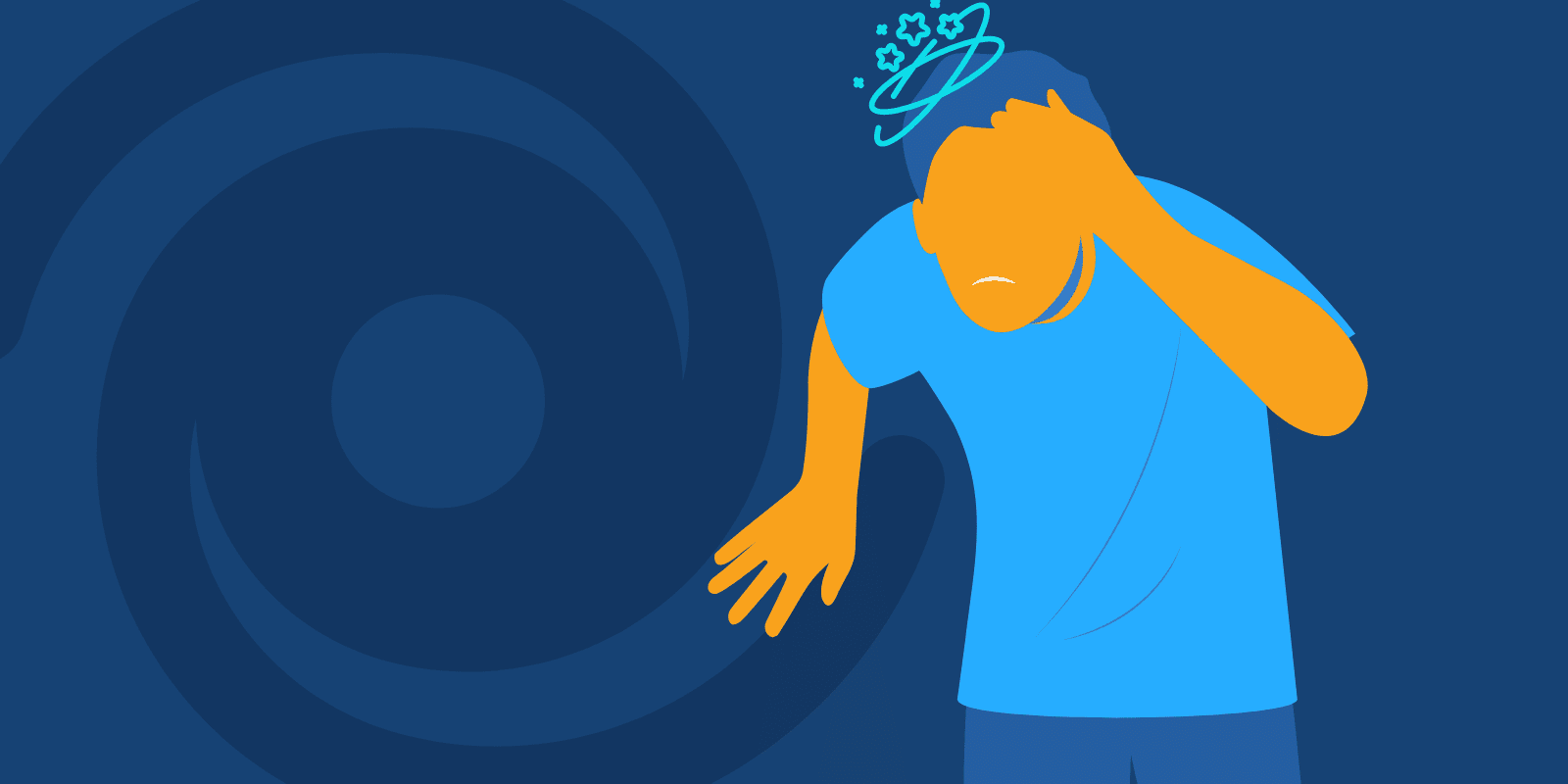
It is also important to let your doctor know if you are taking the following:
Let your doctor know if you are taking antacids like Maalox or Mylanta.
You should also notify your doctor if you are pregnant, planning to become pregnant, or breastfeeding.
Gabapentin can impact the amount of deep sleep a person gets at night and cause them to become extremely tired or drowsy.
It is typically recommended to start the first dose in the evening.
According to Clinical Neuropharmacology, gabapentin increases slow-wave sleep in individuals with insomnia, which may help improve sleep quality.
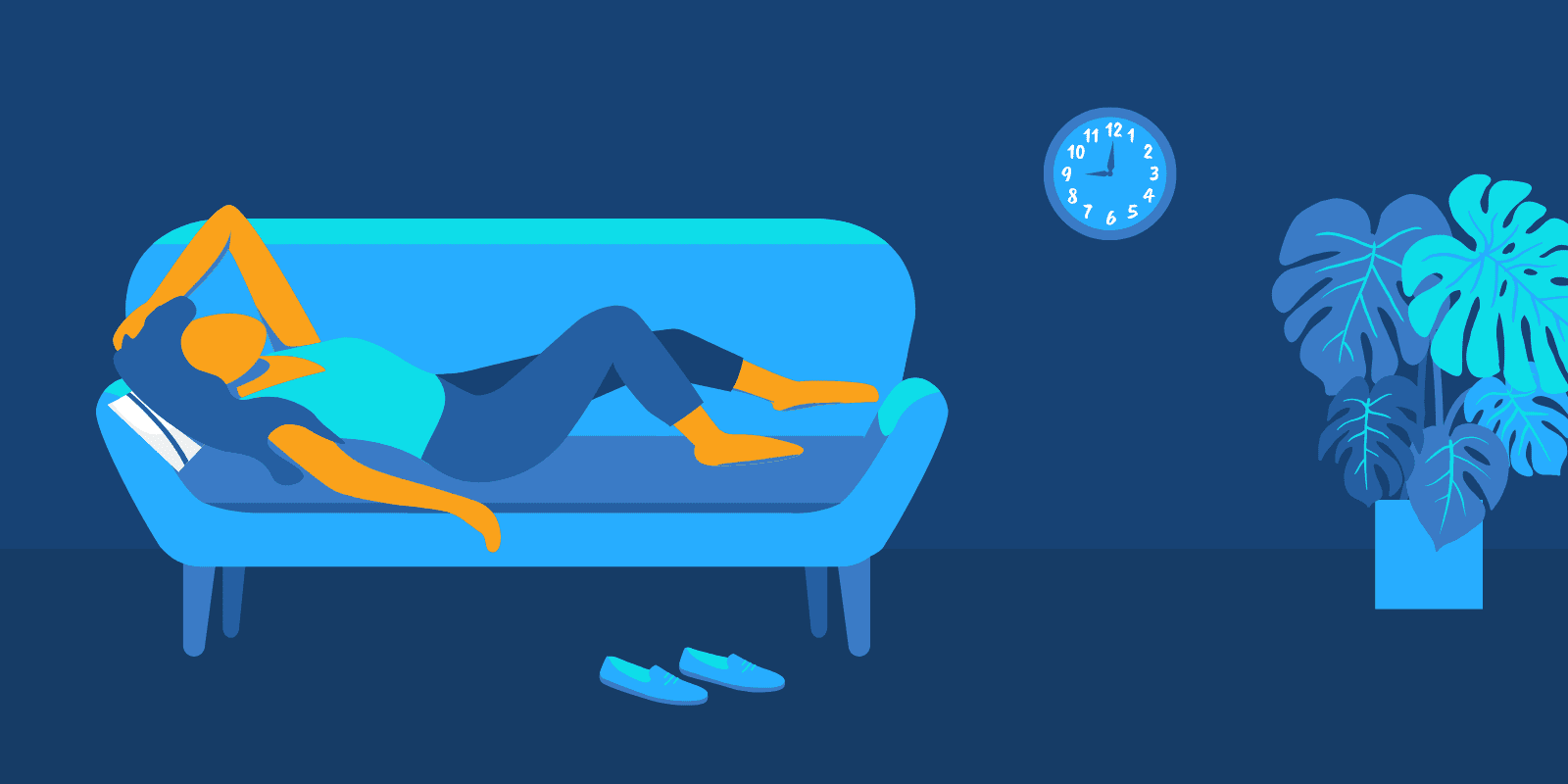
Individuals are usually recommended to take gabapentin right when they are ready to sleep.
When prescribed gabapentin for pain relief, it can take a few weeks to a couple of months to see improvements.
Every individual is different, and it may not work the same for some as it does for others.
It may take time to figure out what the most effective dosage is for a person’s body.
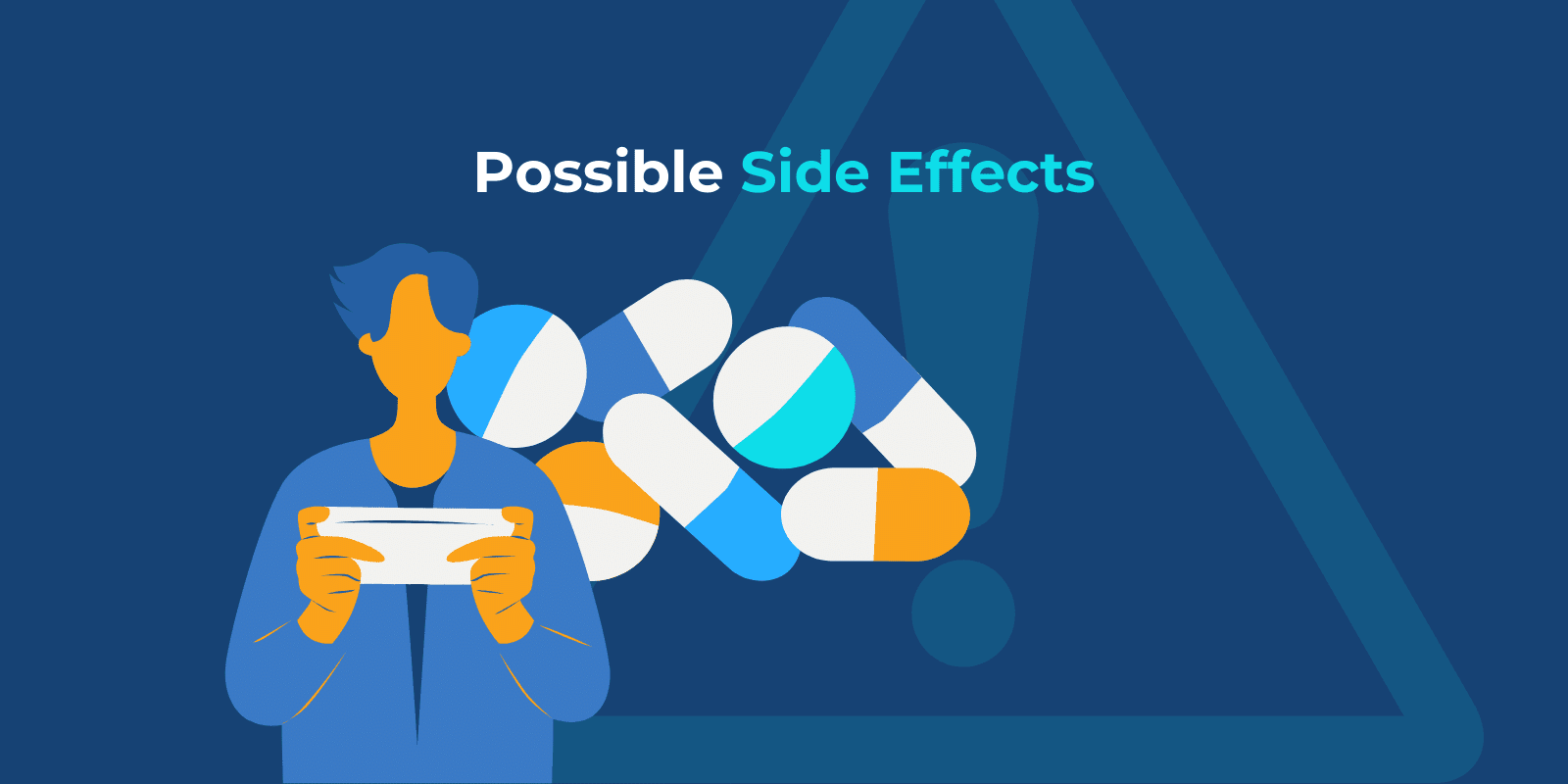
Common side effects of gabapentin can include the following:
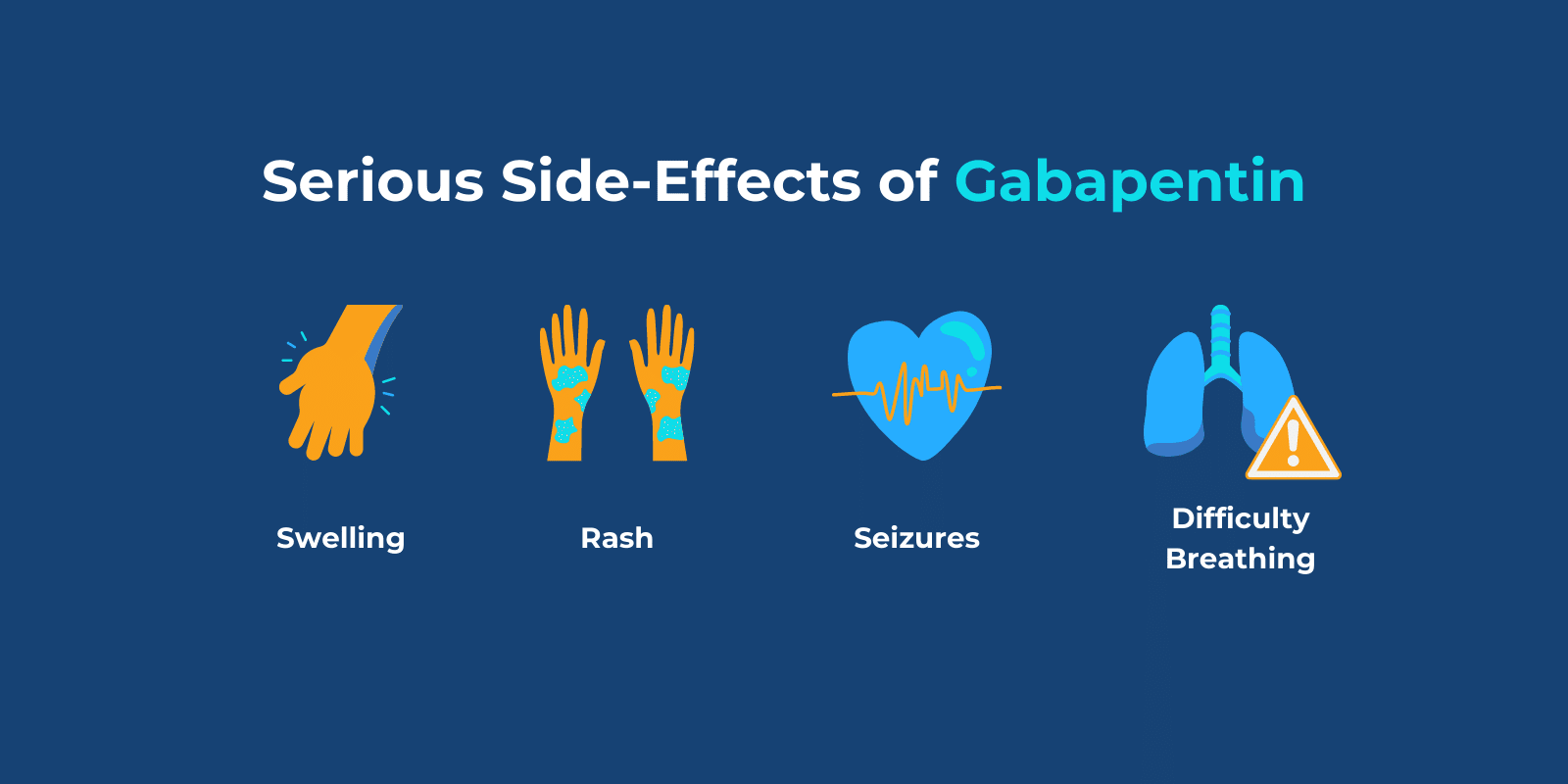
Other serious side effects may include:
Call your doctor if you or a loved one are experiencing unusual or serious side effects. If you are in an emergency, call 911.
One of the main effects of gabapentin is drowsiness.
When a person first starts taking gabapentin, they may feel really sleepy or even clumsy and dizzy.
Most people report feelings of relaxation and calmness.
Some people also report that they feel their thinking is slower.
When prescribed, a lot of people may not feel very much different aside from pain relief and minor side effects. However, when misused, a person is at higher risk of experiencing adverse effects as they are using it for other reasons than intended.
Gabapentin abuse may contribute to negative long-term effects that include:
In 2019, the FDA warned about safety concerns regarding the use of gabapentin and pregabalin and how they may cause serious breathing difficulties in individuals who have respiratory risk factors.
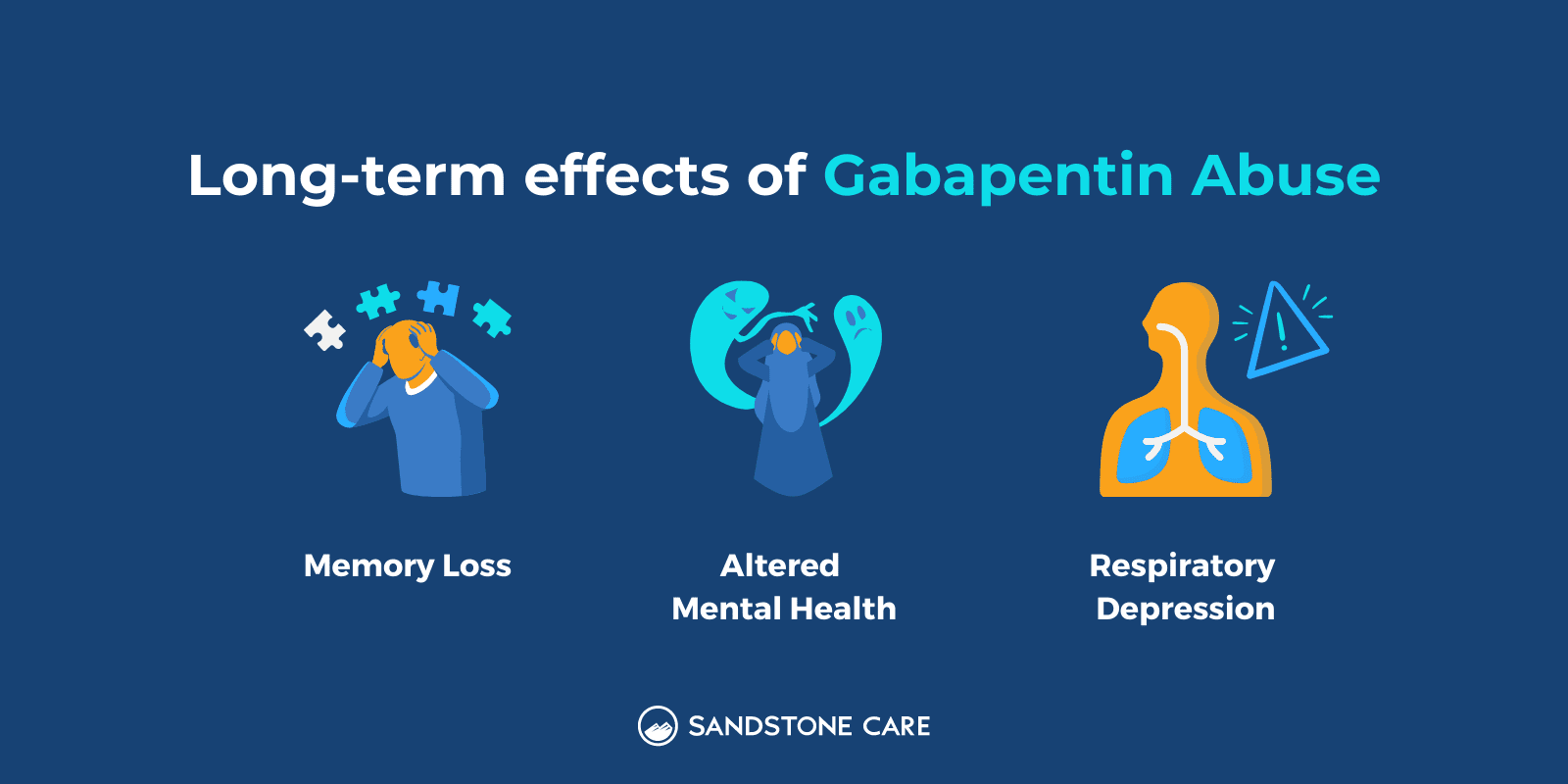
Potential adverse effects of taking gabapentin can include the following:
While gabapentin may help make a person feel calmer and more relaxed, it can also have negative effects on a person’s mental health.
Gabapentin can contribute to feelings of agitation, irritability, sadness, and nervousness.
Consequently, a person taking gabapentin may exhibit abnormal changes in their mood and behavior.
Serious adverse effects of gabapentin include depression, anxiety, and suicidality.
If you or a loved one are experiencing suicidal thoughts, you are not alone. Call 911 or the National Suicide Prevention Lifeline at 988 to talk to someone and get help.

Two surveys reported that the misuse of gabapentin was 1.1% of the general population and 22% in drug abuse treatment centers.
Gabapentin is at a relatively higher risk of use because of its accessibility. Gabapentin has not been named a controlled substance, making it easier to obtain.
Some may have been prescribed it, and others may get them from a friend or family member that has been prescribed it.
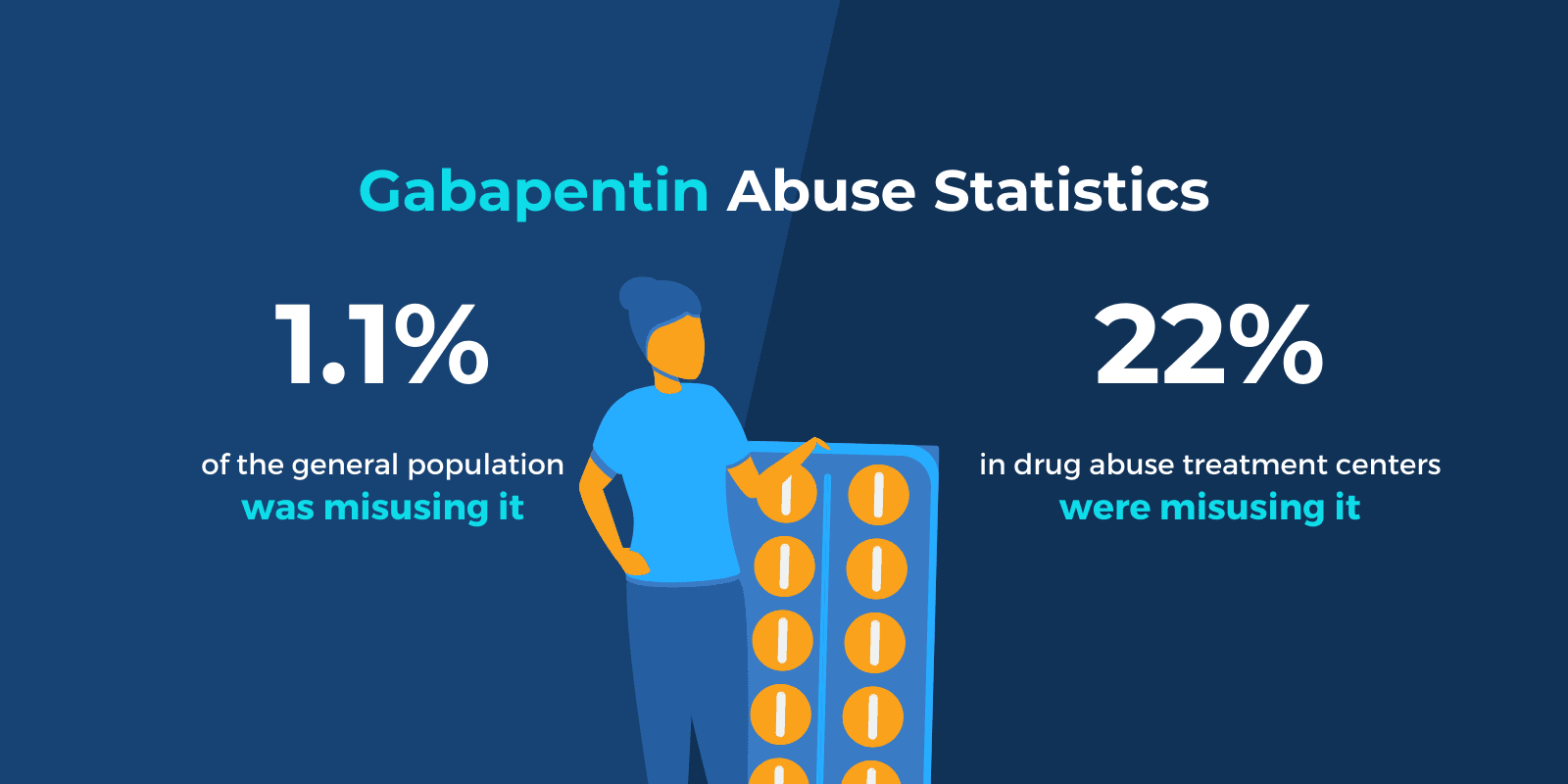
Gabapentin has the potential for abuse, dependence, and withdrawal.
Individuals may abuse gabapentin by using it as a way to self-medicate. They may use it to produce calming effects, relaxation, and euphoria.
Gabapentin is also commonly misused with other substances, especially opioids, as a way to intensify their effects.
A person who is prescribed gabapentin may misuse it by taking more than the prescribed dosage or using it for entirely different reasons than what it is meant for.
A common sign of gabapentin abuse is when patients that are prescribed gabapentin frequently ask for early refills.
Those who abuse gabapentin may try to achieve a high that elevates their mood and makes them feel calm and relaxed.
The effects of a gabapentin high can be intensified when mixed with other substances like alcohol or opioid. However, mixing gabapentin with other substances increases the risks of overdose and other adverse effects.

Yes, a person can overdose on gabapentin.
The risk of overdose also becomes higher when gabapentin is mixed with other substances.
Common overdose signs can include:
If you believe you or a loved one are experiencing an overdose, call 911 immediately.
An important thing to know is that you should always consult with your healthcare provider before you stop taking gabapentin or want to decrease the dosage.
You should not stop taking the medication on your own.
Abruptly stopping use or significantly decreasing your use can lead to withdrawal symptoms that can become very dangerous.
Gabapentin should be tapered with guidance from your doctor, meaning you gradually lower the dosage with the end goal of discontinuing the medication to avoid dangerous side effects and withdrawal symptoms.
If you are experiencing serious or adverse side effects from taking gabapentin, seek medical help.

According to Annals of Neuroscience, chronic use of gabapentin may cause an increase in neurodegenerative changes in the adult brain.
This study revealed that gabapentin use could cause alterations in important areas of the brain, including the hippocampus and striatum.
One of the first steps for gabapentin addiction treatment typically involves a medically-supervised detox. Individuals who have developed a dependence will face withdrawal symptoms when they stop taking a drug.
Medically-supervised detox helps people manage withdrawal symptoms in a safe and controlled environment.
There is a wide variety of treatment programs available to fit the needs of each individual. For those who require a higher level of structure and support, inpatient or residential care involves the person living in a facility to receive care.
Others may benefit from less intensive programs, like day treatment or intensive outpatient programs.
Psychotherapy, or talk therapy, is usually a big part of the plan for treating addictions, including gabapentin addiction.
Through talk therapy, a person can begin to understand the connection between their thoughts, feelings, and behaviors. They can learn how to restructure their beliefs and how to practice healthy coping mechanisms.
It is not uncommon for those with a gabapentin addiction to be addicted to other substances.
In this case, it is important that the treatment plan addresses each substance.
Addiction not only hurts the individual but impacts the whole family and the people around them as well.
Going to family therapy can help each member heal together, gain a better understanding, and learn healthy coping mechanisms and ways they can support themselves and one another.
Support groups for those struggling with substance abuse and addiction have also shown to be helpful. Through support groups, a person can relate to and learn from others who may share similar experiences and feel a sense of community and support.
If a person experiences a gabapentin overdose, the drug may be removed through kidney dialysis, also known as hemodialysis.
If you believe someone is overdosing on gabapentin, call 911.
You can also help by keeping the person’s airway open, keeping the person calm, and staying with them until medical help arrives.
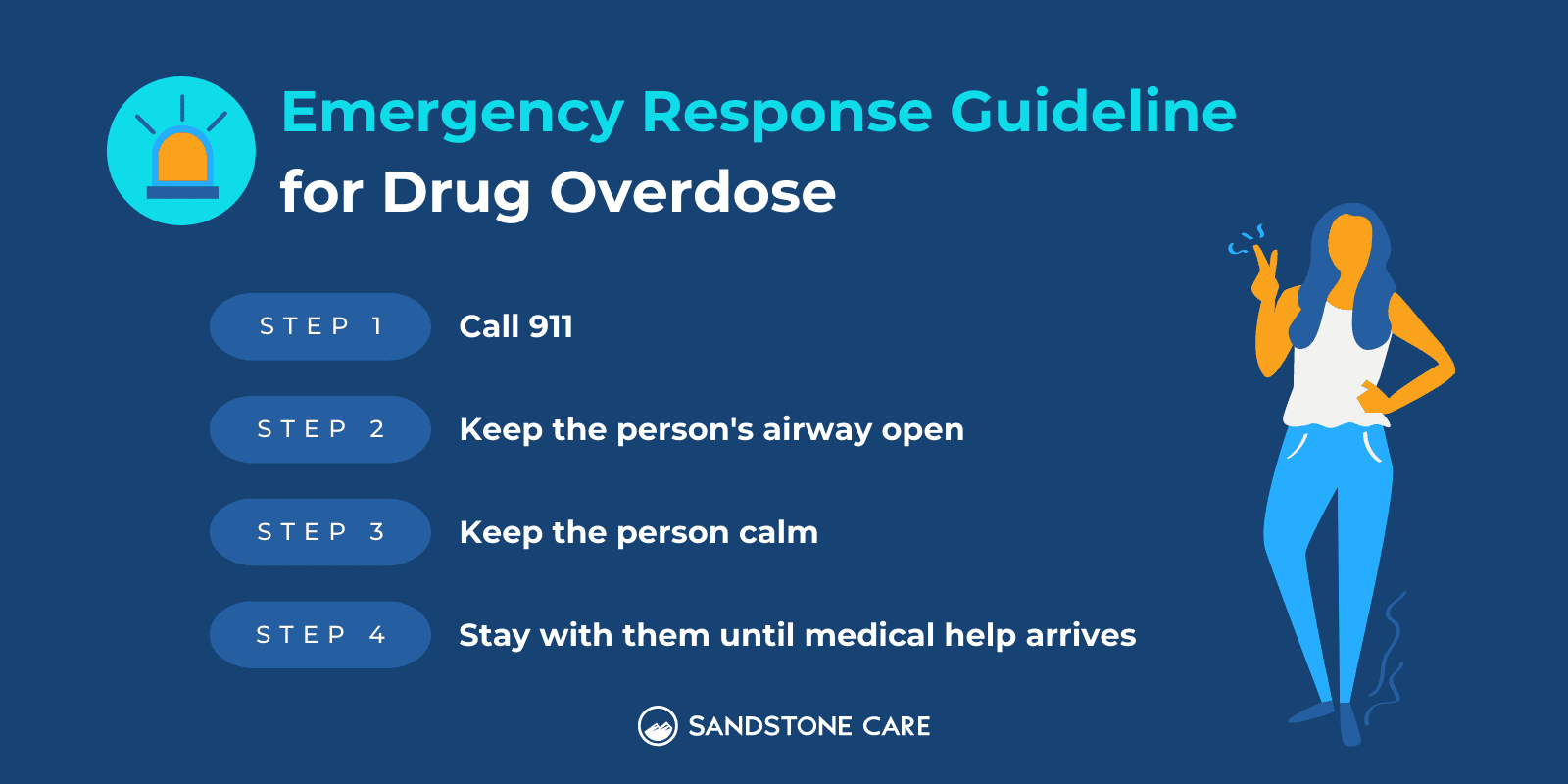
Like opioids, overdosing on gabapentin is possible.
However, there is no known antidote for gabapentin overdose.
Narcan, also known as naloxone, is used to reverse the effects of opioids in the case of an overdose; however, it is not effective in treating gabapentin overdose.
Yes, gabapentin should be tapered.
It is important to consult with your doctor if you want to stop taking gabapentin or if you plan on decreasing your dosage.
Stopping gabapentin use can result in withdrawal symptoms that can become very dangerous if not managed safely.
Your doctor will likely gradually decrease your dosage until it is the right time to discontinue.
Withdrawal symptoms occur when a person develops a dependence on a substance.
These symptoms may include:
FAQ
Our goal is to provide the most helpful information. Please reach out to us if you have any additional questions. We are here to help in any way we can.
The DEA refers to narcotics as opium, opium derivatives, and their semi-synthetic substitutes.
Gabapentin is not currently named a narcotic or controlled substance.
The International Journal of Immunopathology and Pharmacology reports gabapentinoids, tricyclic antidepressants, and serotonin-norepinephrine reuptake inhibitors (SSRIs) to be first-line drugs for neuropathic pain.
For severe nerve pain, stronger drugs, including tramadol, oxycodone, and morphine, are sometimes used.
Gabapentin works by decreasing abnormal excitement in the brain.
Gabapentin is similar to the structure of the neurotransmitter GABA. However, it does not bind to GABA receptors.
Gabapentin can create strong bonds throughout the brain where voltage-gated calcium channels are present. This is how gabapentin is believed to inhibit the release of excitatory neurotransmitters.
Gabapentin is not considered a controlled substance, making it fairly easy to obtain and putting it at a higher risk of abuse.
The street price of gabapentin usually ranges from around 1 to 3 dollars.
Gabapentin is not approved by the FDA to treat anxiety.
However, it is sometimes used as an off-label treatment for anxiety.
Although, it is important to note that a possible side effect of gabapentin is anxiety.
A person should not self-medicate with gabapentin for anxiety as it can worsen their symptoms.
Yes, some of the side effects of gabapentin can include increased appetite and weight gain.
Similar to other medications, such as certain antidepressants, gabapentin can stimulate your appetite, causing you to feel more hungry and eat more.
Different factors can impact how long gabapentin stays in your system; however, in urine tests, gabapentin can typically show up from 24 to 48 after use.
The elimination half-life of gabapentin is 5 to 7 hours.
A drug’s half-life refers to the time it takes for the active substance in your body to reduce by half.
Gabapentin is an anticonvulsant, a type of drug used to treat seizures or convulsions by controlling abnormal electrical activity in the brain, according to the National Cancer Institute.
According to Regional Anesthetic and Pain Medicine, gabapentin may reduce primary mechanical allodynia in acute inflammation following a thermal injury.


Gabapentin is an anticonvulsant primarily used to treat seizures. However, there is concern surrounding its safety and potential for misuse. Sandstone Care is here to support teens and young adults with mental health and substance use disorders.